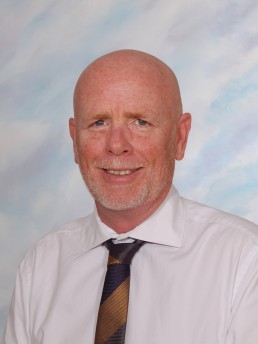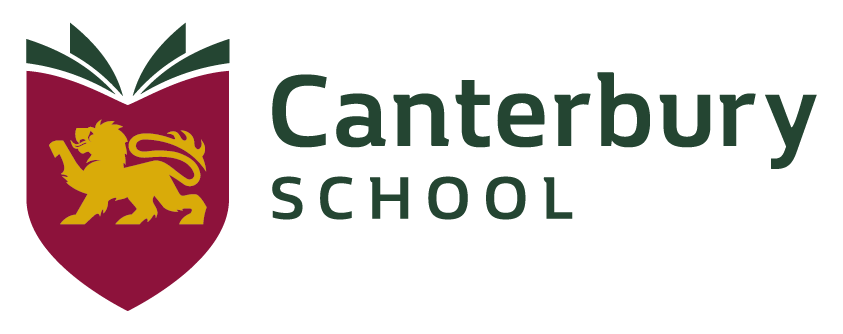
At the Secondary Department we provide an academic programme based on the content and distinctive character of the English National Curriculum without being limited by it, designed to achieve a high level of linguistic competence in the English language, supported and enhanced with the use of digital learning technologies.


Welcome to the Secondary Department
A warm welcome to the Secondary Department at Canterbury School of Gran Canaria. It is both my pleasure and privilege to lead this exceptional learning community and facilitate further innovation in the pursuit of excellence.
Building on the strong foundations laid in the Primary Section, the dedicated and professional secondary staff continue to promote curiosity, resilience and a lifelong love of learning through both the rigorous curriculum and supportive personal development provision.
Students pursue a broad, balanced and challenging curriculum, culminating in internationally recognised qualifications whilst also following a personal development programme which promotes the school ethos of can do, challenge and care. This enables the students to develop skills, attributes, qualifications and a mindset to allow them to thrive in a complex and ever-changing world.
We have high expectations of all students and support mechanisms in place to allow them to flourish and realise, if not exceed, their potential. The challenging, caring environment promotes excellence across the school and reinforces the schools’ values of friendship, responsibility, unity and respect.
We offer full immersion in the English language and a strong emphasis on learning Spanish language, literature and the Canarian culture. With the study of a third language at age 11 we prepare our students to become confident global citizens of the future.
Please do arrange a visit to witness the staff and students in action and see for yourself the excellent teaching and learning taking place. I would be delighted to provide a tour of our outstanding learning community and answer any questions or queries you may have.
David O'Kane, Head of Secondary
Secondary Department (San Lorenzo)
From 11 to 15 years old
In the Secondary Department we offer an engaging and challenging academic programme that consists of 2 cycles:
– Key Stage 3: Y7, Y8 and Y9 (from 11 to 13 years old)
– Key Stage 4: Y10 and Y11 (from 14 to 15 years old).
In all cycles the subjects are taught by specialised teachers.
Key Stage 3: A challenging and creative programme based on the National Curriculum of England & Wales adapted to both our local and the international context, which is crucial in laying the foundation of knowledge, skills and understanding needed to adapt to an ever-changing world. In this cycle, the same subjects are taught as in the primary school, incorporating a chosen third language, either French or German.
Key Stage 4: Students are prepared for the official International General Certificate of Secondary Education (IGCSE) exams. An academically rigorous programme recognised as one of the best in the world. The subjects to be taken are divided into central, elective and those required by the Spanish educational system for recognition of ESO.
During the last quarter of the Y11 course, the students participate in an Educational Internship Programme in local organisations. The objective is to make a first contact while acquiring an awareness and understanding of the world of work. They carry out voluntary work practices in their chosen company and prepare and present a report that reflects this invaluable experience.
At the end of Y11, students take IGCSE examinations, externally assessed by the Cambridge and Edexcel Examination Boards, which ensures that the marks obtained conform to international standards and benchmarks.


The core subjects are:
- English
- Maths
- Coordinated Sciences (Physics, Chemistry and Biology)
They are taught in skill groups, so each student receives training aimed at maximizing their abilities, with weekly tutorials that allow to evaluate their performance and evolution.


- History
- Geography
- Art
- Music
- Computing
- Physical education
They are taught like the rest of the subjects by specialised teachers.


- Spanish Language and Literature
- Social Sciences
to obtain the credential for homologation of the Spanish ESO degree.




For this, the school has a support program that helps them choose the subjects that best suit their preferences and abilities:
- Optional subjects fair
- Informative meetings with parents
- Personalised tutorials




- Business Studies
- Computing
- Travels and tourism
- French
- German
- Art and Design
- Physical education


- Spanish Language and Literature
- Social Sciences
to obtain the credential for homologation of the Spanish ESO degree.
Bilingual Education
A bilingual education, as well as fluency in other languages, provides a greater choice of universities, as many value bilingual skills in applicants, regardless of the course applied for. Students will have more leeway to choose which university they want to apply to and in which country, depending on the languages they speak.
